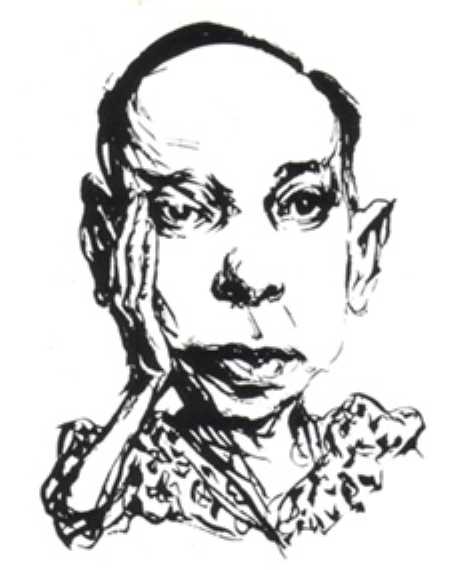4.1.2.3.4 “Poetry and Prose”, 1944, by Virgilio Piñera (1912 – 1979)

The text “Poetry and Prose” by Virgilio Piñera is a hybrid composed of some poetic pieces and fourteen narratives, genres that converge under his pen around Piñera’s already outlined worldview and his desire to bring to light the absurdity of reality but also through a fictional impulse regarding situations, what could be called absurd – real of human behavior and its motivations.
Cintio Vitier, in “Ten Cuban Poets” reiterates an opinion he had previously expressed about the book: “What is centrally expressed here is that in this country we are experiencing that degree of desubstantiation by which two men who cross paths, a wedding, a copulation or a woman ironing, become equivalent and self-destruct, they do not retain resonance or enter into a hierarchy, they are nothing more than phenomena that are there under the terribly rhetorical light of the empty proscenium, fragments that do not connect with each other, that do not feed or suggest an organic, superior and invisible form.”
From a narrative perspective, we already see here pieces that would become anthological short stories or microfictions, such as “Hell,” “The Journey,” and “In Insomnia.” In the latter, we see Piñera’s perspective on life, in the sense of conceiving an eternal, uneventful, iterative journey—the very antithesis of the meaning commonly attributed to the journey in terms of surprise.
For its part, “In Insomnia” is one of Piñera’s pieces that has achieved greatest popularity among literary scholars, in whose concise structure he recreates the old topic of sleep and death, but breaking with the primordial brotherhood between Thanatos and Hymns, through the impossibility of sleep even in the realm of the afterlife:
“The man goes to bed early. He can’t get to sleep. He tosses and turns, as is only natural. He tangles himself in the sheets. He lights a cigarette. He reads a little. He turns off the light again. But he can’t sleep. At three in the morning, he gets up. He wakes up the friend next door and confides that he can’t sleep. He asks for advice. The friend advises him to take a short walk to tire himself out a little. Then he should immediately drink a cup of linden tea and turn off the light. He does all this. He can’t sleep. He gets up again. This time he goes to the doctor. As always, the doctor talks a lot, but the man doesn’t sleep. At six in the morning, he loads a revolver and blows his brains out. The man is dead, but he hasn’t been able to fall asleep. Insomnia is a very persistent thing.”
As for poetry, this notebook contains memorable pieces from Piñera’s work, including the poem “Vida de Flora,” literally dedicated to a large-footed ironer. As some scholars point out, thus delving into the realm of so-called antipoetry by choosing this topic, the aforementioned piece constitutes a colloquialistic foretaste, from which the following excerpts are offered:
“You had big feet and a humped heel.
Put on the flower. Wait for me, we’re going on a trip together.
(…)
You went back and forth between two hot plates:
Flora, be very careful, your feet are very big.
and the furrier hires you to display their giant lasts.
(…)
Hey, Flora: your feet don’t fit in the river that will lead you to nowhere;
to the country where there are no big feet, no small hands, and no hanged men.
You wanted them to play the drum for you so the birds would come down,
the birds singing between your fingers while the drum beat.
A fierce air rippling through the rigidity of your plants,
all that you thought when the iron was bending you over.
Flora, I will accompany you to your final resting place.
You had big feet and a humped heel.”
As you can see, this text combines essential elements of Piñera’s poetry and fiction. His dramatic flair is evident in both genres. Regarding the narrative, the way he presents the stories is very similar to the concept of the stage. The poetry is also imbued with that theatrical spirit, especially in its dialogue. This book constitutes a point of reference in Piñera’s evolution as a multifaceted writer.








